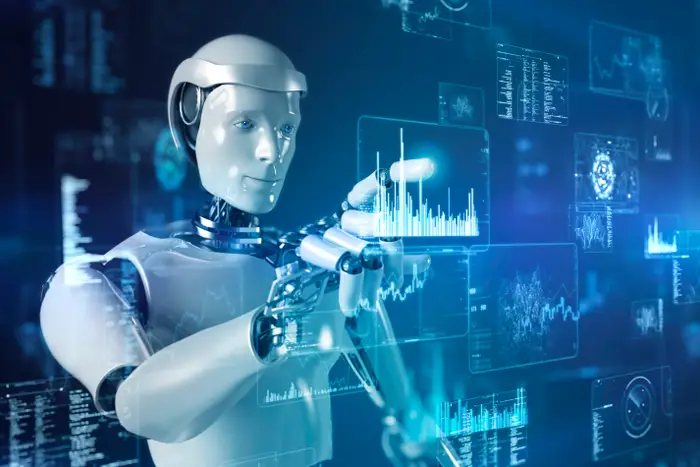Do you worry that artificial intelligence will soon be able to replace you at work? Not to worry! Here are five reasons why AI cannot replace people in the workplace.
Employers are likely to think of automated procedures that make work simpler, faster, and more efficient when faced with the rapid rise of artificial intelligence (AI) technology in today’s labour market. However, employees are likely to worry about losing their jobs and being replaced by machines.
While AI is intended to replace manual labour with a more efficient and faster method of completing work, it cannot completely eliminate the requirement for human involvement in the workplace. This essay will explain why people are still extremely vital in the job and cannot be completely replaced by AI.

1. AI Can Only Work With Data That Is Provided To It
AI can only operate based on the data that it is fed. Machines are not designed to perform more than they are capable of, and anything more would exceed their capabilities. As a result, if the data fed into the machine does not contain a new field of work, or if its algorithm does not account for unanticipated scenarios, the machine becomes worthless.
These scenarios are typical in the IT and industrial industries, and AI developers are continuously looking for interim solutions. One of numerous prominent artificial intelligence fallacies is that AI technologies will adapt to any scenario.
As a result, if you are concerned that AI would penetrate all industries and eliminate the need for your professional talents, you may rest certain that this will not occur. AI cannot readily mimic human logic and the human brain’s ability to analyse, produce, improvise, manoeuvre, and acquire information.
2. AI Is Not enough in Emotional Intelligence
Emotional intelligence is one of the most important characteristics that keep individuals relevant in the workplace. The value of emotional intelligence in the workplace cannot be overstated, particularly when working with clients.
Humans, being social animals, have an evident desire for emotional connection with others. AI attempts to imitate human intelligence, but emotional intelligence is more difficult to copy than intellectual intelligence. Why? Because it necessitates empathy and a thorough comprehension of the human experience, particularly pain and suffering, yet AI does not feel pain.
Smart business owners and executives recognise the significance of appealing to the emotions of their employees and clientele. A machine cannot attain such degrees of human connection, yet there are strategies to improve your emotional intelligence as a person.
Regardless matter how effectively AI computers are engineered to respond to people, humans are unlikely to have such a profound emotional connection with these machines. As a result, AI cannot replace people, especially since human interaction is essential for corporate success.
3. AI Requires Fact-Checking
The fact that AI chatbots, such as ChatGPT, are frequently erroneous necessitates fact-checking by human moderators. While AI may learn rapidly, it lacks common sense and is simply incapable of reasoning and disputing facts to the extent that humans can. This is why you should generally avoid asking AI chatbots specific questions.
The message here is that, because artificial intelligence cannot regulate itself and requires external moderation, fact-checking will most certainly become a big vocation in the future. In the interim, you might want to brush up on your research abilities.
Learn to Use AI Instead of Fearing It
Artificial intelligence should not be feared. To avoid being replaced by AI, you must, nevertheless, elevate your game. Upskill, remain current on industry developments, and be original and creative. As a result, you will become a highly valuable asset for the organization.
So, the next time you hear about how artificial intelligence is threatening to replace people in the workforce, remember this article and know that humans will always have the upper hand over AI.
